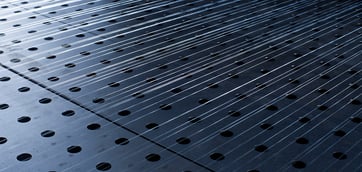 PVA, or Polyvinyl Alcohol, is a water-soluble synthetic polymer that lends itself to a variety of adaptions. PVA can be made into threads of fibers, liquids, coatings, beads, lubricants, and many other forms. As a filament yarn, PVA has valuable properties:
PVA, or Polyvinyl Alcohol, is a water-soluble synthetic polymer that lends itself to a variety of adaptions. PVA can be made into threads of fibers, liquids, coatings, beads, lubricants, and many other forms. As a filament yarn, PVA has valuable properties:
- High tenacity
- Low-elongation
- High modulus
- Low creep
- Heat resistance
- Incompressibility
- UV Resistant
- Water Soluble
These properties make it adaptable for the following uses, among them are:
- Reinforcing rubber hoses and rollers
- Geo-textiles
- Fishing Industry applications
- Consumer textiles
- Manufacturing ropes and other industrial textiles
- Agricultural canvas, nets and more
- Reinforcing concrete for construction industry
- 3D printing applications
This fiber is able to reinforce many different materials, is pliable, and compared to other materials, is very compact. PVA is also highly adaptable. Depending on the specific application, PVA yarns can be designed to possess higher or lower tenacity, to have higher or lower elongation, and to come in a various weights and thicknesses. Another benefit of PVA is that because it is water-soluble, it is easily washed away. In 3D printing, for example, PVA fiber can support a structure and then be dissolved away after it is no longer needed.
Despite being widely popular, PVA is not manufactured in the United States, and is typically sourced from abroad. Some of the prominent PVA yarn producers include:
These yarns often need to be further processed through twisting, winding and/or single-end coated or treated to be used in product application. Service Thread provides and processes a wide array of these products, with information on which yarns are best suited to your application. There are also other alternatives to PVA, depending on what application these fibers and yarns are required for.
Do you need help finding the best yarn for your application?



